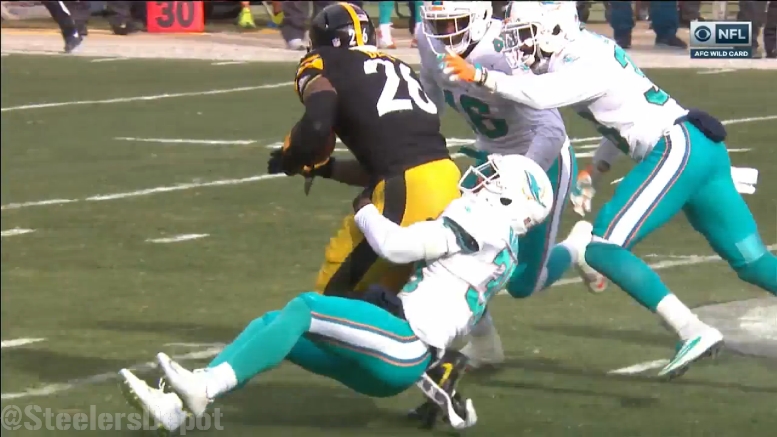Whether it comes in the next couple of months or maybe next year, at some point Pittsburgh Steelers running back Le’Veon Bell is going to have successfully reset the running back market, and I think there will be a slow trickle that follows after him, a trend that will continue in the 2017 NFL Draft.
When the Vikings released Adrian Peterson, the average contract value of the top running back on the market on a long-term deal dropped by over 40 percent, from around $14 million to around $8 million. Bell’s franchise deal is closer to the former than the latter, but the tag value doesn’t represent a true market value.
I think it would be fair to look at Bell as a player who reinvigorated the running back spot as a premiere position when it seemed to be becoming threatened, phased out into a two-down role and increased specialization. His demonstration of his ability to carry out all tasks and do them well was I think influential in what we have seen happen in recent drafts.
And perhaps even in what we are starting to see among those at the position coming in from the college level, because he is certainly at a point in his career in which those in college are studying his game and trying to emulate him in one way or another as an example of a player at the top of his game.
There were a couple of years in which a running back wasn’t even taken in the first round. Bell himself was only a second-round pick. But Todd Gurley was taken in the first round after Bell’s breakout 2014 season, and Ezekiel Elliot was yet another top-10 draft pick.
Later this offseason, we should see at least one running back, if not more, come off the boards in the first round. And in the next few years we will probably see backs like David Johnson and Elliot—and perhaps Gurley if the Rams get back on track—entering into long-term arrangements that work off of whatever deal Bell ends up signing, and whenever that ends up getting signed.
It will be interesting to see where the per-year value of the deal falls and how close it gets to the value of the franchise tag, which is just over $12 million. Bell did say that he is willing to play this season under the tag if necessary, but should that happen, it could have an unpredicted effect on future negotiations between the two sides.
No matter how it ends up playing out, Bell’s tenure in Pittsburgh has shown him to be a somewhat transcendent figure at the position who is revitalizing it as the domain of an every-down player, and he is the prototype. It’s only inevitable that he gets paid like it.








